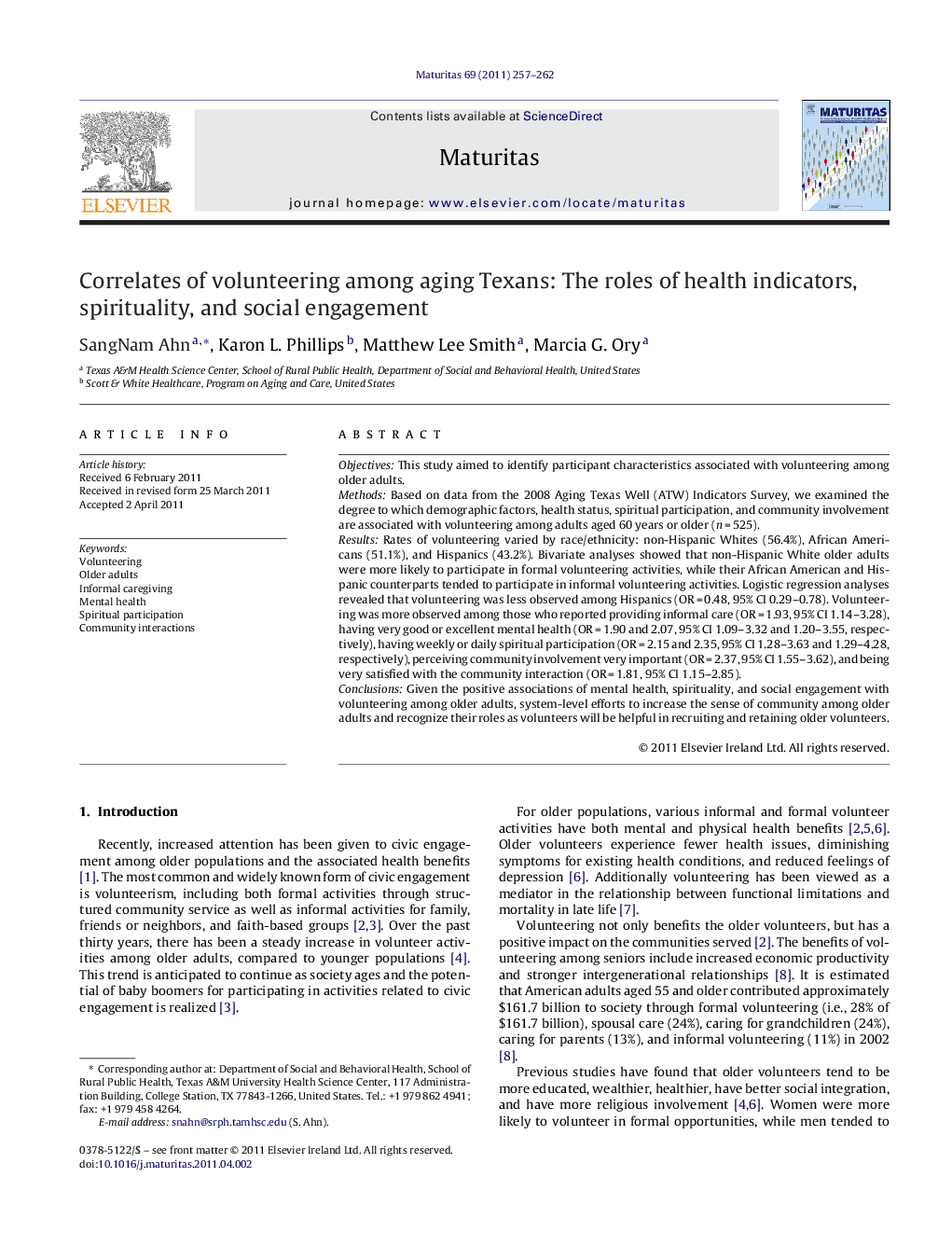| Article ID | Journal | Published Year | Pages | File Type |
|---|---|---|---|---|
| 1917934 | Maturitas | 2011 | 6 Pages |
ObjectivesThis study aimed to identify participant characteristics associated with volunteering among older adults.MethodsBased on data from the 2008 Aging Texas Well (ATW) Indicators Survey, we examined the degree to which demographic factors, health status, spiritual participation, and community involvement are associated with volunteering among adults aged 60 years or older (n = 525).ResultsRates of volunteering varied by race/ethnicity: non-Hispanic Whites (56.4%), African Americans (51.1%), and Hispanics (43.2%). Bivariate analyses showed that non-Hispanic White older adults were more likely to participate in formal volunteering activities, while their African American and Hispanic counterparts tended to participate in informal volunteering activities. Logistic regression analyses revealed that volunteering was less observed among Hispanics (OR = 0.48, 95% CI 0.29–0.78). Volunteering was more observed among those who reported providing informal care (OR = 1.93, 95% CI 1.14–3.28), having very good or excellent mental health (OR = 1.90 and 2.07, 95% CI 1.09–3.32 and 1.20–3.55, respectively), having weekly or daily spiritual participation (OR = 2.15 and 2.35, 95% CI 1.28–3.63 and 1.29–4.28, respectively), perceiving community involvement very important (OR = 2.37, 95% CI 1.55–3.62), and being very satisfied with the community interaction (OR = 1.81, 95% CI 1.15–2.85).ConclusionsGiven the positive associations of mental health, spirituality, and social engagement with volunteering among older adults, system-level efforts to increase the sense of community among older adults and recognize their roles as volunteers will be helpful in recruiting and retaining older volunteers.
